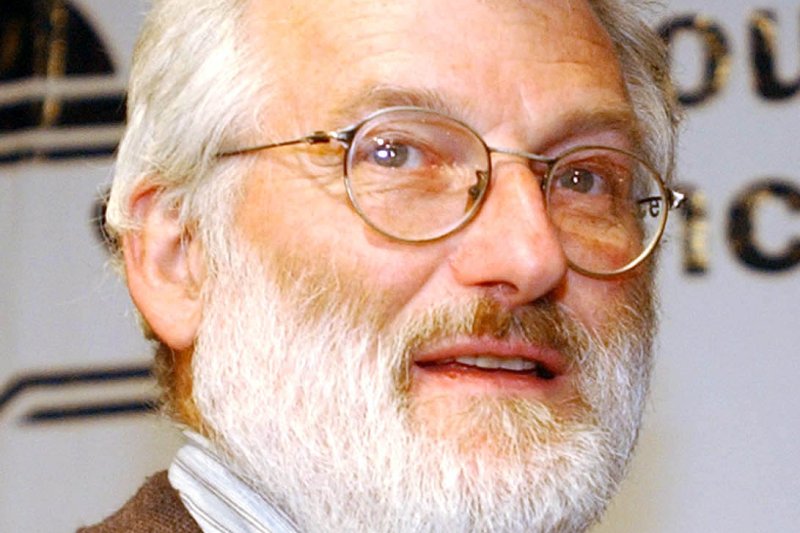1 of 2 | Geneticist John Sulston, the 2002 Nobel Prize winner in Physiology or Medicine, attends a lecture at the St. Louis Science Center in St. Louis, Missouri. File photo by Bill Greenblatt/UPI |
License Photo
March 9 (UPI) -- John Sulston, a pioneering British geneticist who was the face of the international project to decode the human genome, died Friday at the age of 75.
"We are deeply saddened to announce the death of Professor Sir John Sulston, founding director of the Wellcome Sanger Institute," the institute said in a statement. "He was a great scientific visionary and leader who made historic contributions to science."
Sulston won the Nobel Prize in Physiology or Medicine in 2002 for his work on decoding the genome of the nematode worm Caenorhabditis elegans.
The Sanger Institute said his findings were key to understanding how cancers develop and how genes control cell division and death in organisms.
"We all feel the loss today of a great scientific visionary and leader who made historic, landmark contributions to knowledge of the living world, and established a mission and agenda that defines 21st-century science," Sanger Institute Director Mike Stratton said Friday.
Born in Cambridge on March 27, 1942, Sulston became fascinated with the mechanical workings of organisms from an early age. He earned an undergraduate degree in organic chemistry at Pembroke College and a Ph.D in nucleotide chemistry.
He attributed his love of living things to his father, Ted Sulston, who worked as an Anglican priest.
"When young I was mainly interested in the physical world, especially anything to do with electricity, but I think something of his love for living things may have rubbed off on me," Sulston wrote in his Nobel Prize biography.
"When it came to choice of subjects, science was obvious -- since I was uninterested in anything else."
In 2010, Sulston was appointed to lead a study for Britain's Royal Society to research the world's growing population and its possible future social and economic impacts.
Sulston was made a Companion of Honor by Queen Elizabeth II last year for her birthday honors, for contributions to science and society -- joining the ranks of author JK Rowling and musician Paul McCartney.
At the time of his death, Sulston was professor and chairman of the Institue of Science, Ethics and Innovation at Britain's University of Manchester.















